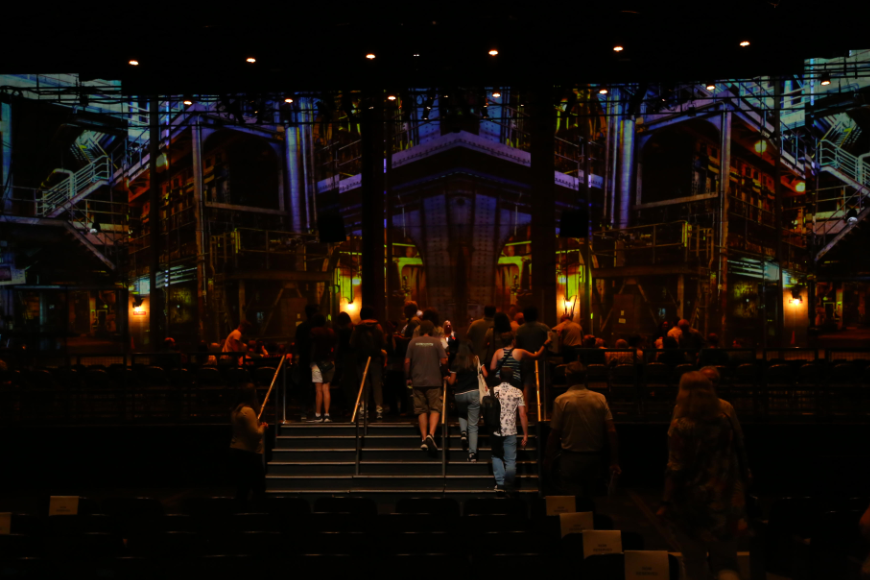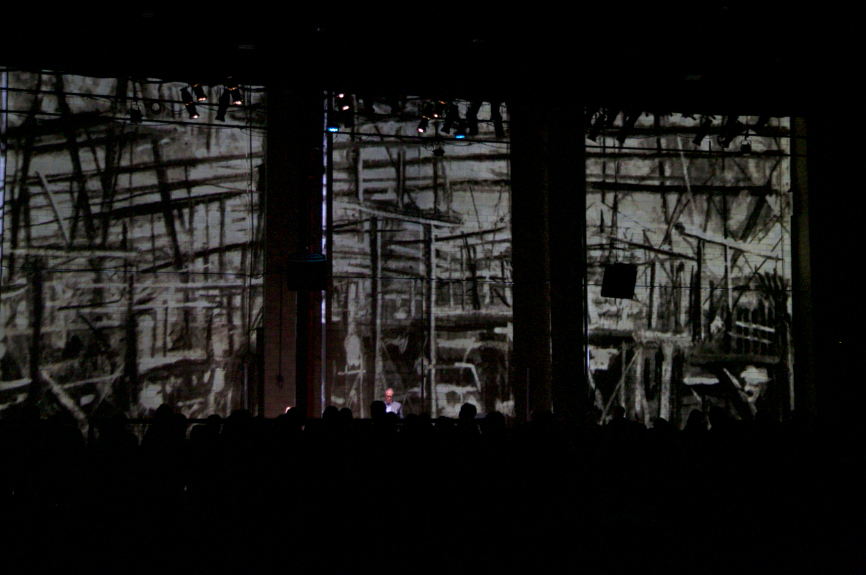August 13, 2024

The Role of the Arts in Energy Transitions and Community Crisis
Whether due to environmental stress from flooding and extractive practices or due to the complexities of transitioning energy systems, many Appalachian communities have been under strain. Specifically in Conesville, Ohio, residents have been slowly recovering from the closure of the AEP Conesville Coal-fired Power Plant that struck the town during the height of the COVID-19 pandemic. With the plant functioning as not only an economic center, but also a community center for the folks of Conesville, its decommission hit the town on multiple fronts during an already challenging time. Four years later, residents still grieve but are recovering through a medium underutilized in environmental crises and energy transitions: art.

“CALLING HOURS” as Appalachian Communal Catharsis
With the suddenness of the Coneville plant’s month-early closure, the community had no opportunity to say goodbye or process its decommission. The communal grief was palpable and multi-faceted. During this same period, a team of Ohio State University researchers were conducting a study in three different counties all dealing with the closure of coal-fired power plants. With Coshocton County being one of these three, the researchers headed by Dr. Jeffrey Jacquet heard varying sentiments of the residents, as well as their lack of emotional closure.
“theatrical memorial written and performed to give voice to the loss of a way of life and pay tribute to the generations of coal-energy production at AEP Conesville.”

This led to the creation of “CALLING HOURS,” a “theatrical memorial written and performed to give voice to the loss of a way of life and pay tribute to the generations of coal-energy production at AEP Conesville.” The piece was written by Anne Cornell, a resident of Coshocton County and features a script made up of edited interview excerpts from conversations with the folks of Conesville. In May of 2023, three years after the closure of the plant, “CALLING HOURS” was presented two different nights in downtown Coshocton at a local arts center to upwards of 250 people. The performances are said to have been met with wailing in the audience and the production of communal catharsis at the grief of losing such a central piece to the county’s residents and economy. Though striking for the local population, the theatrical memorial has also extended its reach nationally and internationally. Most recently, a production of the memorial was featured at the Wexner Center’s Mershon Auditorium in conjunction with the Global Coal Transitions conference at the Ohio State University. This performance being brought to Columbus carries a different kind of weight, as Columbus is “a municipality once lit by energy produced by the now demolished plant.”

The Arts and Energy Transitions
“CALLING HOURS” provides us working in energy, industry, and policy with a model of how art and storytelling can serve a key role in these periods of collapse and transition. The sheer emotional complexity and depth to working in this sector of our economy cannot be captured and conveyed with a graph or a report; storytelling through artistic mediums is paramount to understanding the perspectives of folks on the ground working through these changes. And in addition to these artistic routes of achieving newfound understandings, art and storytelling can be equally useful for those impacted to process their change and grief. In the case of Conesville, residents did not get to formally say goodbye to the plant or to celebrate the coming of a new era for the town. Folks had to stay moving and keep their own lights on in the overwhelming shadow of the closed plant.
With this model that “CALLING HOURS” has so perfectly demonstrated, the arts can serve a dual purpose during times of crisis and transition. For those on the ground, artistic means can help to sift through the complex emotions and connections to place and labor that are found in this sector. For those working in policy, these artistic means are a way to achieve a greater perspective of what it truly means to work in energy and of the complicated senses of pride that face environmental implications.
References: Pomerene Center for the Arts, “CALLING HOURS: A theatrical memorial” Program.
